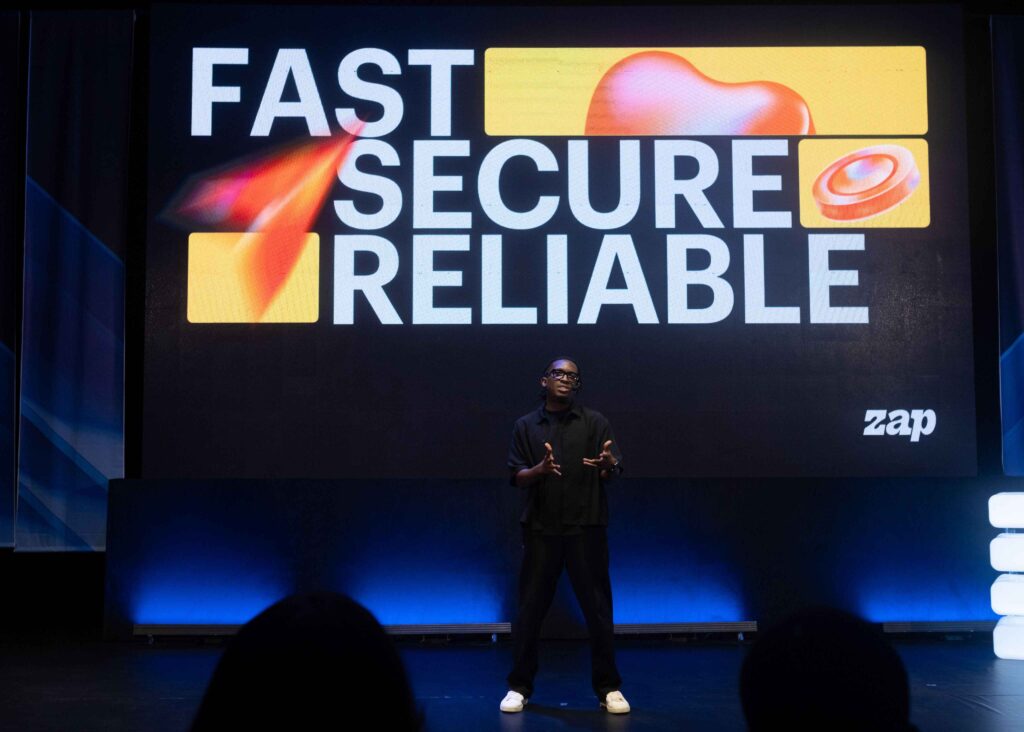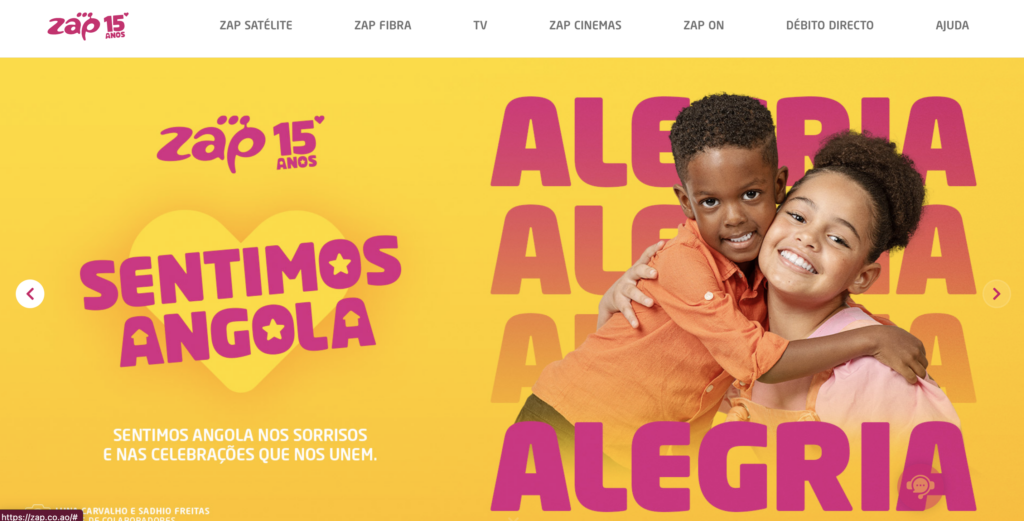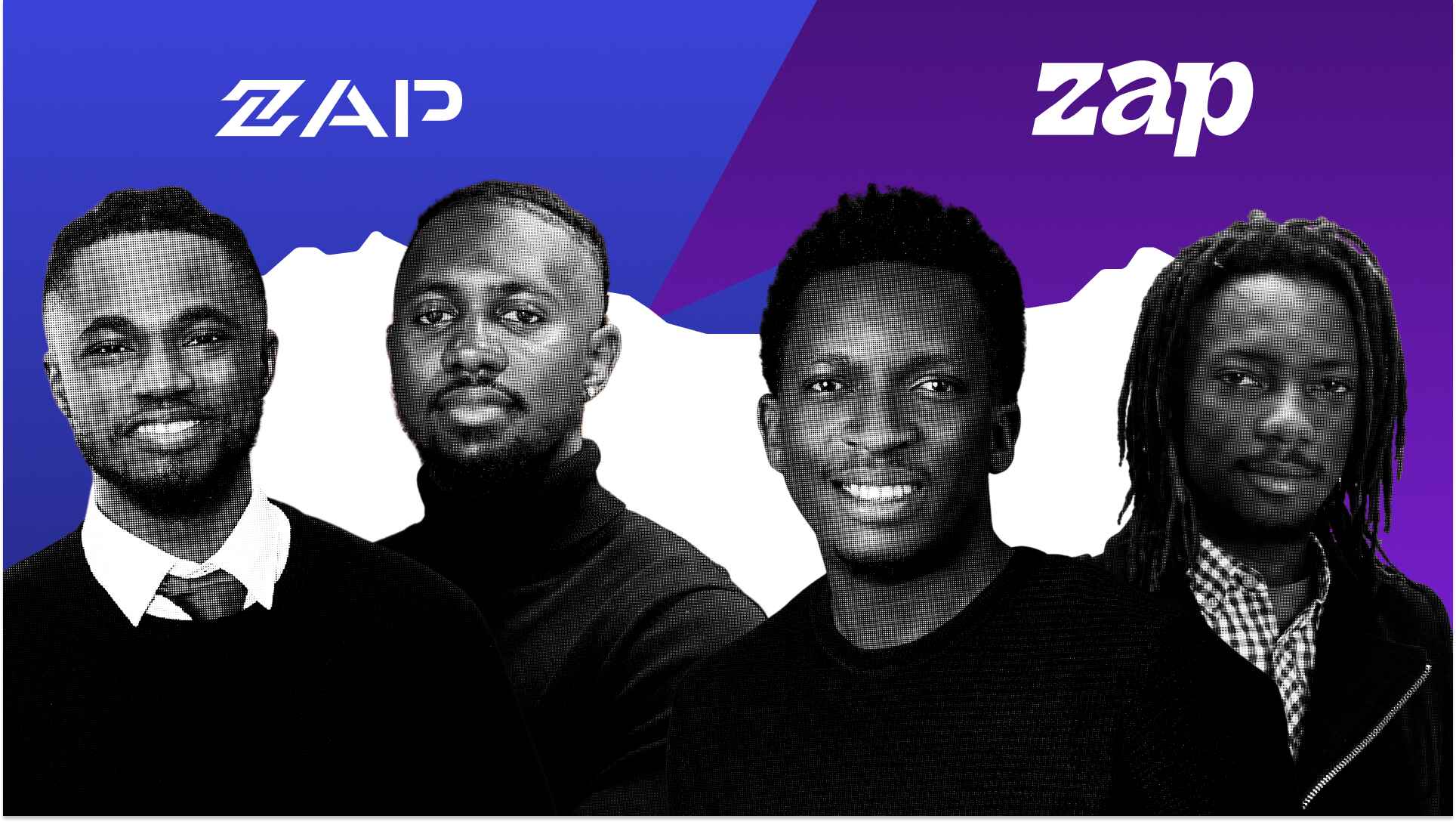For the team at Zap Africa, early 2025 was supposed to be lift-off. Riding the momentum of crossing 50,000 users for their non-custodial crypto exchange, they were deep in talks to close a crucial seed funding round.
Capital that would fuel growth, expand the team, and solidify their place in Nigeria’s burgeoning crypto landscape. Then, the music stopped. The deal froze. The reason? A clash with one of Africa’s fintech titans, Paystack, over three simple letters: Z-A-P.
“We had a seed round early in the first quarter, and we were not able to close because of the issues with Paystack,” Tobiloba Asu-Johnson, co-founder of Zap Africa, said over the call with Condia.
“They [Paystack] spun the narrative to suggest we dropped the ball on due diligence and made it seem like they were taking proactive steps with their cease-and-desist. This not only shook investor confidence but also painted us in a negative light. If customers were concerned, and we don’t even hold their funds, imagine how potential investors felt trusting us with their capital.”
More than a clash over branding, the controversy cut deep, ending Zap Africa’s fundraising efforts, unsettling loyal users, and deflating a team that had spent three relentless years building from the ground up.
At the heart of the conflict was Paystack’s launch of a new product, called “Zap”, in March 2024.
For Zap Africa, this wasn’t just an unfortunate coincidence; it felt like an existential threat from a Goliath they believed should have known better.

Zap Exchange: Born in a climate of fear and loss
To truly understand their concerns, it’s necessary to rewind to late 2022. The crypto world was reeling. The spectacular collapses of major crypto platforms FTX and Celsius, followed by the troubles at Nigerian fintech Patricia, had vaporised user funds and shattered trust in platforms that held custody of assets.
“A lot of customers trusted custodial exchanges with their crypto investments, and this led to a really tragic experience for all of them,” Asu-Johnson said.
It was in this climate of fear and loss that the idea for Zap Africa’s first product, Zap Exchange, was born. An explicitly non-custodial platform where users retained control of their keys and, therefore, their funds.
Launched in 2023 after months of development that began in late 2022, Zap Exchange found its footing. It attracted users wary of centralised points of failure, growing steadily from 20,000 customers in 2024 to over 50,000 this year.
Parallel to this growth was a less glamorous, but equally critical, journey: securing the name.
Aware of the importance of intellectual property, the founders began the arduous process of trademarking “Zap” in Nigeria around September 2023, applying across three key classes: 35 (Advertising, business management), 36 (Insurance, financial affairs), and 42 (Scientific and technological services). Nigeria follows the Nice Classification system (NCL), which divides trademarks into 45 classes.
“The way trademark application works in Nigeria is that you apply and wait till it becomes available, if the trademark is taken by someone else,” Asu-Johnson said.
Class 35 came through relatively quickly. But classes 42 and the crucial Class 36 (financial affairs) were already held and had pending applications. Zap Africa joined the queue. They were told Class 36 wouldn’t be available until early 2025 or potentially later, once the previous holder’s rights expired without renewal.
“We were already in line and were first in the queue,” Asu-Johnson said. Class 42 was eventually approved in June 2024.
While they were waiting for feedback on the Class 36 trademark, Paystack launched its product, Zap.
The announcement sent shockwaves through the smaller company. Adding salt to the wound was Paystack’s marketing tagline, revealed in the demos: “You just got zapped.”

To Zap Africa, it felt pointed, almost mocking.
“They didn’t only take the name,” Asu-Johnson said. “They literally added to their app, ‘You just got zapped.’ Why? That seems a bit like there are too many coincidences.”
Crucially, Zap Africa claims Paystack wasn’t ignorant of their existence. “Paystack admitted to knowing about the company called ZAP,” Asu-Johnson said. “With the knowledge of another company in the space using the name Zap, they went ahead to launch a product and called it Zap. Let’s take out the trademark issue. Is that right? No. It’s not right.”
Attempts were made, Asu-Johnson said, to resolve things quietly.
“I reached out to my friend who had a friend in Paystack. I sent a mail saying ‘Let’s talk about this because my legal team is getting concerned.”
The response, he claims, was dismissive, citing vacations and directing them to another email. Formal legal letters followed.
According to Zap Africa, the fallout has been severe. Beyond the scuttled seed round, customer confidence wobbled. In a crypto space already plagued by trust issues, the public dispute sparked fear.
“Zap Africa users were unsure if we’re about to close down,” Asu-Johnson said, describing the anxiety rippling through their user base. “Everyone’s a little bit sceptical and uncertain.”
The internal impact has been just as damaging. “The team, everyone has been really down about the whole situation. A lot of people were so unsure about their jobs.”
On March 27 2025, the call came: Class 36 was theirs. They filed and secured the approval on April 2. Zap Africa believed they had finally protected the name they had been building for years.
But trademark experts say that the Nigerian trademark landscape isn’t as straightforward as it appears.
How trademarks work in Nigeria
A trademark can be a word, logo, slogan, symbol, or combination that distinguishes the goods or services of one business from another.
In Nigeria, trademarks are governed by the Trademarks Act, Cap T13, Laws of the Federation of Nigeria 2004, and administered by the Trademarks Registry, which is under the Federal Ministry of Industry, Trade and Investment.
Typically, the trademark application process in Nigeria begins with a search at the Trademarks Registry to ensure the desired mark isn’t already registered or too similar to an existing one. If the search is clear, the applicant (typically through a registered agent or lawyer) files an application specifying the trademark, class of goods or services, and other required details.
If the Registrar finds the mark acceptable, it is published in the monthly Nigerian Trademarks Journal for a two-month opposition period. If no opposition is filed or any objections are resolved, a certificate of registration is issued. The trademark is initially valid for seven years and can be renewed every 14 years thereafter.
That’s the theory. In Nigeria, the reality is often very different.
While the Nigerian Trademarks Registry has made efforts to digitise its records, there’s still a heavy reliance on paper-based storage. The digitised records system is fragmented, making it inefficient and prone to errors.
“Sometimes you might not see a trademark on the portal, but when you check the fileroom, you’ll see it”
Nigerian Trademark expert
In 2014, the Intellectual Property Automated System (IPAS) was introduced and has been in use since then. However, in September 2020, a newer trademark filing system—IPO Nigeria—was launched as an upgrade. As a result, there are now two systems through which trademarks can be filed.
The challenge is that neither system contains the same information, as the migration from IPAS to IPO Nigeria is still in progress. This means that when searching for trademarks on IPO Nigeria, some records may be missing, despite being available on IPAS.
This transition has resulted in inconsistent data management, making it difficult to verify existing trademarks or identify duplicates during searches.
There’s also a noticeable skew in how word marks (name) are prioritised over device marks, such as designs and logos.
“Oftentimes, what the trademarks capture are your word marks, not device marks. You might often see conflicting device marks at the publication of the journal,” the trademark expert said.
“If the initial official owner of the mark doesn’t buy or come across the journal to challenge the new applicant, you’ll end up seeing that there are two conflicting device marks due to no fault of either party.”
It’s also worth noting that the publication of the journals is infrequent.
“This means a company could register a trademark today, but a similar mark might be registered by another company a year later. If that second company moves faster through the process, they could end up receiving their certificate first.”
As of June 2025, only one journal has been published this year, falling short of the expected six. The publication schedule of the Nigerian Trademarks Registry journal impacts the timeframe for trademark registration in Nigeria, as the journal is typically released only three to four times a year.
A recent increase in journal publishing fees from ₦21,000 to ₦50,000 per journal has sparked optimism about more frequent publications, but this has yet to materialise.
Condia engaged a trademark agent at a fee to verify the ownership of the Zap trademark—a process that spanned over seven weeks and involved multiple follow-ups. The results revealed that Paystack trademarked both the word mark and device mark for “Zap by Paystack” across classes 9, 35, 36 and 42.
Zap Africa trademarked “Zap” under the name Zap Technology Limited, registering both the word mark and device mark under classes 36 and 42. This aligns with trademark acceptance letters shared by Zap Africa with Condia, which indicate coverage for classes 35, 36, and 42 — although the trademark agent’s search did not return evidence for class 35.
For class 35, Finstar (Sociedade de Investimentos e Participações S.A.), an Angolan investment and holding company, registered and owns the trademark for only its “Zap” logo. Zap, owned by Finstar, is a leading Angolan media and telecoms brand offering satellite TV, fibre-optic internet, mobile apps, public Wi-Fi, and business connectivity solutions across Angola and Mozambique.

“We’re not looking for financial compensation”
What does Zap Africa want now? It’s straightforward, they say.
“First of all, an apology from Paystack, publicly. Next would be them changing the app’s name.”
Asu-Johnson insists they aren’t looking for financial compensation, just the space to continue building under the banner they established.
“We just want to continue being able to build what we’ve been doing for the past years without any sort of disturbance or negative news.”
For Zap Africa, this fight is just about legalities; it’s deeply personal.
“This whole trademark thing is more than just a name. We’ve been building this up for three years,” Moore Dagogo-Hart, Zap Africa CTO and Co-founder, said. “Tobi and I started it alone. And now we want to build it into something bigger than us, and we will not stop until we get back the name.”
While trademark ownership can, in theory, be verified through official channels (though access often requires legal intermediaries), the situation highlights a potential imbalance in the ecosystem. Zap Africa feels overlooked, dismissed by a larger player they believe should be setting a better example.
“Paystack is supposed to be a leader in the space and lead by example. And just seeing them do what they’ve done. It just really shows that, like most big companies in Nigeria, they don’t really care about the startups,” Asu-Johnson said.
The two companies are now engaged in a legal battle that’ll be decided by the law.
Paystack, for its part, declined to comment, citing ongoing legal proceedings. The full picture may still hold nuances that have yet to emerge publicly.
But from Zap Africa’s vantage point, the damage is done, the trust broken.
Get passive updates on African tech & startups
View and choose the stories to interact with on our WhatsApp Channel
Explore




